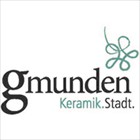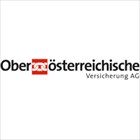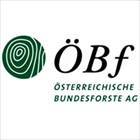History
A HISTORICAL ACCOUNT OF THE MOUNTAIN MARATHON
The birth of the mountain marathon – First event held in 1989
J. Willi Buchinger, who has now sadly passed away, was an endurance athlete and extreme mountain climber from Pinsdorf in the district of Gmunden. It was his idea to climb and conquer all the mountain peaks around Lake Traunsee as part of a 24-hour marathon.
After doing lots of preparation, undertaking many surveys and taking numerous time measurements, Willi Buchinger officially launched this mountain adventure in 1989 with the support of his family and fellow alpinists. Unfortunately, the weather refused to play ball on the first date and, as a result, it was not until one week later – on the alternative date of 10 June 1989 – that the first ever mountain marathon was able to take place. The crowning glory of this competition, the Traunstein leg, took the participants via the steep Hernlersteig track. Several participants with good local knowledge and a home advantage immediately opted for the non-marked tracks that took them via the "Hochkamp" or "Zierler" routes to the top of the mountain that dominates Lake Traunsee.
Out of the 42 initial runners and walkers, more than half ended up throwing in the towel. Back then, the route still went via the Großer Sonnstein peak, with the Feuerkogel leg only being introduced in 1990. Wolfgang Kölblinger from Traunkirchen and Alois Leitner from Weyregg both crossed the finish line in Gmunden-Weyer at exactly the same time with an unexpected best time of 8 hours and 55 minutes. It would take nearly two more hours for the next participants to arrive. The organisers of this first marathon had estimated that it would take the first athletes around 16 hours (after starting at 3 a.m. in the morning) to reach the lakeside town of Gmunden.
A look back at the mountain marathon (1990 - 2011)
1990 Out of the 150 registered participants, only 42 of them actually made it to the starting line due to adverse weather conditions. Nevertheless, 16 runners still managed to complete the full route, arriving in Gmunden between 4 p.m. and 10 p.m.
1991 73 dedicated and determined competitors – including five women – took part in the third marathon on a beautiful day. One German alpine runner commented: "There is no other event like this throughout the whole of Austria and Germany".
1992 Even though the event had been called off the day before due to heavy rainfall, 32 participants were determined to go ahead in spite of the weather.
1993 A record year, both in terms of the number of participants and personal achievements. The 5th marathon, which was held on 19 June 1993, saw 103 participants set off from the starting line, two of them women.
1994 The ultra mountain marathon held in 1994 presented the mountain athletes (172 participants) with some very particular challenges.
1995 It was only 7.30 a.m. when the first runners arrived at the Ebensee-Rindbach checkpoint after completing the most prestigious leg of the route – one that had taken them via the Grünberg and Traunstein (Naturfreundesteig track) mountains and the Spitzelsteinalm (Daxnersteig track) alpine pastures. The best unofficial time was 9 hours 55 minutes.
1996 132 participants from three nations successfully completed this marathon on 6 June 1996. More than half of the participants completed the entire route by travelling via the Feuerkogel plateau and the adjacent grassy mountains known as the "Grasberge".
1997 Just three days after the successful completion of the 9th mountain marathon, the man who had founded the event and organised nine marathons – Willi Buchinger from Pinsdorf – passed away at the age of 52 on 15 July 1997 after a long period of illness. In his honour, the "Rund um den Traunsee" mountain marathon has now been officially renamed the "Willi-Buchinger- Gedächtnislauf" (Willi Buchinger memorial run).
1998 The "Traunstoana" mountain climbers group (a member of the "Naturfreunde" association) organised the 10th mountain marathon in 1998, with 114 endurance athletes taking part. Bernhard Weiss from Scharnstein achieved an unofficial best time of 8 hours 6 minutes.
1999 Many participants will have a very clear recollection of the 11th marathon, which was held on 3 July 1999. With the heat of the summer sun beating down upon them, 163 participants (23 of them women) successfully completed the entire 70 km circular route with its altitude difference of 4500 m.
2000 In the year of the millennium, 102 runners managed to reach the finish line in Gmunden in conditions that were not exactly ideal – it poured with rain during the first few hours. Meanwhile, a group of men and women were also plunging themselves right in by tackling the half marathon from Ebensee-Rindbach. Rene Steinpatzer ended up setting the bar extremely high with his best time of 7 hours 35 minutes.
2001 It was great to see such a high turnout on what was one of the hottest days of the year. 201 athletes (including 20 women) set off at 3 o'clock in the morning from the eastern shore with the aim of climbing all the peaks around Lake Traunsee.
2002 2002 On 2 July 2002, Reinhard Pototschnik from Carinthia, caused a real stir. Although he had never taken part in the marathon before, it was he who achieved the quickest time for the most prestigious element of the race. 266 participants set off along the marked routes, with 219 of these athletes ultimately making it to the finish line.
2003 dThe mountain marathon celebrated its 15th anniversary on 5 July 2003 and this time the organisers could see that it was stretching the number of participants to the limit. 252 runners and walkers set out from Gmunden alone with the aim of completing the original 70 km route. Another 39 athletes headed off in the direction of Feuerkogel from Ebensee in order to tackle the half marathon. Rene Steinpatzer quite literally breezed home with a best time of 8 hours 2 minutes.
2004 On 3 July 2004, the runners set off from the new starting area for the first time: the historic setting of Gmunden town hall square. The new starting/finishing hub for the marathon right in the centre of town and next to the lake met with general approval. Willi Riederer from Ebensee achieved the best unofficial time of the day by completing the course in 8 hours 1 minute. As for the female competitors, victory likewise went to someone from the Traunsee region in the form of Karola Schustereder from Pinsdorf, who achieved a time of 9 hours 59 minutes.
2005 In 2005, the marathon was dominated by adverse weather conditions. This time, 226 runners set off from Gmunden town hall square and another 66 from Ebensee (for the half marathon) to undertake this sporting challenge. Of those who completed the full 70 km route, the best unofficial time for the day went to Josef Dißlbacher from Pfaffing with his time of 8 hours 4 minutes. The top female athlete was Barbara Lebutsch from nearby Neuhaus with her time of 11 hours 20 minutes.
2006 The 1 July 2006 was an unforgettable day in the history of the mountain marathon. The rain, coupled with the slippery slopes, forced the 290 runners to give their absolute all. With a new best time of 7 hours 30 minutes, local "matador" Benedikt Rabberger from Pinsdorf managed to break the record that had been set for the 70 km route by Rene Steinpatzer back in 2000.
2007 The 19th mountain marathon on 7 July 2007 suffered a repeat of the same poor weather as the year before. The steep slippery tracks, constant rain, and cold and stormy conditions pushed the participants to the max. With his time of 7 hours 54 minutes, Willi Riederer from Ebensee managed to achieve the best time of the day for the second time (he first achieved this in 2004). The new female champion was Margit Hirtzy from Graz with a time of 11 hours 17 minutes. In total, 296 men and 57 women set off on the finest mountain run in Europe.
2008 The theme of the 2008 marathon year was "20 years of the mountain marathon 1989 – 2008". The festivities began on 3 July with an evening at the Kolpingsaal concert hall in Gmunden, which was attended by numerous guests of honour and featured many moving memories that had been captured in sound and images. The run, which took place on 5 July with a record number of 364 athletes setting off from Gmunden and Ebensee, saw super-athlete Benedikt Rabberger from Pinsdorf set a new unofficial record for the entire 70 km course with his time of 7 hours 26 minutes. As for the female competitors, it was another athlete from the Salzkammergut area, Margit Scherbaum from Scharnstein, who ended up being head of the pack with a time of 10 hours 38 minutes. Meanwhile, the youngsters were enthusiastically setting off on their short-distance routes as part of the first ever "Kinderbergmarathon" (children's mountain marathon).
2009 The year 2009 marked another new development: the first ever charity hike in aid of a children's cancer charity. The fastest woman to complete the "real" marathon was Barbara Sullmann from Brixen, who managed a time of 11 hours and 36 minutes, and the fastest man was Willi Riederer with a time of 7 hours and 54 minutes. Another remarkable achievement was that of Benni Rabberger, who managed to stick to his plan of tackling the route twice. At exactly midday, he set off again on his charity hike in aid of the children's cancer charity. And he actually did it, even though he had to cover a good portion of the route in total darkness. Finally, at 2.30 in the morning – more than twenty-two hours after setting off for the first time – he had attained his goal. After covering 140 kilometres and an elevation gain of 9000 metres, he had finally made it to the finish line!
2010 The 22nd mountain marathon on 3 July 2010 will be remembered for the extreme heat: however, Nina Heidinger refused to be distracted by the temperatures of up to 32 degrees. Hailing from Gmunden, she succeeded in cutting the women's record to 9 hours and 50 minutes. It was in this context that a new record was almost set for the number of participants with 413 starters. As if to make up for this narrow miss, the third ever children's competition boasted 51 participants. In this particular year, the charity hike took place in aid of the Schädel-Hirn-Trauma-Lobby (the traumatic brain injury lobby).
2011 The 23rd marathon on 2 July 2011 was the exact opposite of the previous year: this time, participants had to contend with the cold, the rain, snow showers and hail. Nevertheless, another record was broken for one of the routes. This was the record for the men's half marathon from Gmunden to Ebensee, which – having stood at 4 hours – was broken by Benni Rabberger with his time of 3 hours and 55 minutes. Now in its fourth year, the children's mountain marathon continued to grow and this time the proceeds from the charity hike went to the mountain rescue services of Gmunden, Ebensee and Traunkirchen.
2012 The 24th marathon saw records being set before the race itself was even underway: more than 400 people registered within the space of 12 hours and so the registration process had to be closed after just half a day. Faced with muggy weather conditions and temperatures of around 25 degrees, many of the participants battled with cramp. No records were broken under these weather conditions, but there were four new champions.
2013 This event – the 25th SPORT 2000 anniversary mountain marathon held on 6 July 2013 – set a new record for the number of participants, with a total of 452 starters setting off from Gmunden and Ebensee. In spite of the slippery course, Nina Bauer from Gmunden still managed to smash her own personal best from 2010 with a time of 9 hours 20 minutes. With his time of exactly 8 hours, Benedikt Rabberger from Pinsdorf, who has been the champion of the 70 km route several times, was – once again – the winner of the full marathon.
Now in its sixth year, the children's mountain marathon provided the enthusiastic young runners with yet another welcome opportunity to achieve in the sporting arena. The participants – born between 1998 and 2008, and some even younger – were given a taste of the marathon experience on carefully selected urban routes in the Gmunden area.
The 5th charity hike tracing the original route once again took a group over the Gmundnerberg mountain and down to Gmunden town hall square. The net proceeds from this event were used to help the victims of the flood all around Lake Traunsee.
Manfred Spitzbart (the chief organiser of the mountain marathon since 1997 who will be remembered for his prudence) handed the baton over to Harald Buchinger from Pinsdorf (the son of the marathon's original founder, Willi Buchinger).
2014 The 26th mountain marathon (Bergmarathon powered by Dynafit) saw a record number of participants as well as some very extreme weather.
This was the day on which 489 participants (the highest number ever) rose to the challenge of the 26th "Rund um den Traunsee“ (powered by Dynafit) mountain marathon. And a challenge it certainly was thanks to the weather! On this day, the mountain marathon runners experienced it all – from heavy rain and thunderstorms in the early hours of the morning through to scorching heat in the afternoon. Despite this, the dropout rate was no higher than usual, with 447 participants making it to the finish line (another record), i.e. a success rate of 91.41%.
In spite of the difficult conditions, the starters still put in an excellent performance, although no new records were set. However, Nina Bauer – who holds the record for the full marathon – came pretty close with her efforts on the Ebensee – Gmunden route. With her time of 3 hours 33 minutes, she only fell short of the best ever time by 13 minutes. All in all, this win enabled her to celebrate her fifth victory (she has won the Ebensee – Gmunden leg three times and the full marathon twice). As for the male winner of the full route, Josef Dißlbacher, he was able to climb onto the top step of the podium for the sixth time, having already been crowned champion of the full distance in 2005, 2011 and 2012, and having come first in each of the half marathons on previous occasions. Gerhard Rastinger is also worthy of mention as a master of the Gmunden – Ebensee route. Having already won this distance in 2008, 2009 and 2012, this was his fourth victory. Back in 2012, he was one of the first joint winners in the history of the mountain marathon. This year saw the second joint win, this time for the Ebensee to Gmunden route: Florian Reiter and Manfred Steger each took 3 hours and 8 minutes to complete the course and so shared the victory between them. It was the first time either of them had won. The same goes for Johanna Simmer (winner of the full route) and Karoline Holzleitner (Gmunden – Ebensee).
2015 Faced with temperatures of up to 36 degrees in the shade, 485 starters refused to be deterred from competing in the 27th "Rund um den Traunsee" (powered by Dynafit) mountain marathon. Nevertheless, this was still not quite enough to break the record set the previous year with 489 starters. High-pressure system "Annelie" may have put a stop to that, but a new record was set in sporting terms. This was achieved by one of the women running the half marathon between Gmunden and Ebensee, who were less severely affected by the heat because of the early start time (5 a.m.). Anna Hochhauser achieved her first ever victory in 5 hours and 10 minutes, slicing 4 minutes off the old record that had been set in 2003.
The men's full marathon provided plenty of excitement, with a meagre 2 minutes separating the three leaders after nearly nine hours of running! Once again, the champion turned out to be someone who had never won before: Jürgen Nini. In fact, it was mainly a year of first-time winners, with only Johanna Simmer managing to repeat her success from the previous year in the women's full marathon. By contrast, Albert Geisenberger (Gmunden – Ebensee), Helena Bergthaler and Josef Schick (Ebensee – Gmunden) were first-time winners of their respective distances, although Albert Geisenberger had already enjoyed success on the other half marathon course back in 2013.
2016 Seine bisher dunkelste Stunde erlebt der Bergmarathon bei seiner 28. Auflage: Die Veranstaltung fordert ein Todesopfer, der 24-jährige Marcus B. beendete das Rennen erschöpft am Gmundnerberg und war danach fast 24 Stunden lang verschollen. Leider konnte er am Sonntag von den zahllosen Helfern der Suchmannschaften nur mehr tot aufgefunden werden. Angesichts dieser Tragödie rücken die sportlichen Leistungen natürlich in den Hintergrund, trotzdem erfüllen wir hier unsere Chronistenpflicht mit den wesentlichsten Zahlen:
Wie nicht anders zu erwarten, bescherte der geänderte Anmeldemodus dem Bergmarathon einen neuen Teilnehmerrekord. Und mit 665 Startern waren das gleich deutlich mehr als die 489 beim bisherigen Rekord aus dem Jahr 2016. Auf Grund der schwierigen Wetterverhältnisse (sehr heiß und schwül), die letztlich auf Grund der großen Gewittergefahr dann auch zum Abbruch des Rennens führten, war allerding auch die Quote derer, die das Ziel erreichten, so gering wie noch nie: Nur 73 % der Starter schafften es bis nach Gmunden bzw. Ebensee, deutlich weniger als beim bisherigen Negativrekord im Vorjahr (86 %). In absoluten Zahlen wurde aber auch hier mit 483 Finishern die Bestmarke von 2014 (447) überboten.
Abgesehen davon war es das Jahr der Premierensieger und der ausländischen Gäste: Denn auf allen Strecken konnte sich der Gewinner erstmals in die Siegerlisten eintragen. Und erstmals gab es auch einen „nicht-österreichischen“ Erfolg – und das gleich über zwei Strecken: Den Gesamtmarathon der Männer entschied Anton Philipp aus Deutschland in 08:08:51 für sich, den Halbmarathon von Gmunden nach Ebensee gewann der Slowake Matus Vnencak in 04:10:25 – und an den Siegerzeiten sieht man es schon: Erstmals gab es beim Bergmarathon eine elektronische Zeitnehmung, ab sofort wird daher auch in Sekunden gemessen! Die weiteren Sieger: Gesamtmarathon Frauen: Daniela Karigl, 09:43:13; Halbmarathon Frauen Gmunden- Ebensee: Eva Heizinger (05:43:47); Halbmarathon Frauen Ebensee – Gmunden: Tina Hitzenberger (04:05:07); Halbmarathon Männer Ebensee – Gmunden: Hermann Binder (03:25:35)
2017 Two winners at the trailrun around the lake "Traunsee"! It lasts 29 years until two athlets shared the first place at the whole trailrun around the lake "Traunsee" powered by Dynafit for the first time: Franz-Josef Schögl and Gerald Fister passed the finish line together and shared their premiere win.Premiere wins have been part of the trailrun, Version 2017: Also the female winner of the whole trailrun (Evelyne Lachner), both winner of the run Gmunden-Ebensee (Kathrin Angerer from Germany and Jonas Borsoe Christensen from Denmark), as well as the winner of the run Ebensee-Gmunden (Klaus Stadlmayr) are on top of the podium for the first time. Only the female winner of the run Ebensee-Gmunden, Nina Bauer, wins the run for the 4th time (after 2009, 2011 and 2014), moreover she won the whole trailrun two times (2010 and 2013). A new record of athlets:754 starters show a significant rise in comparison to the last year record of 665.









































